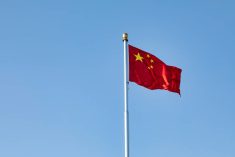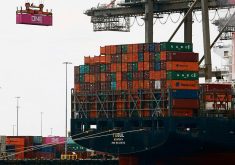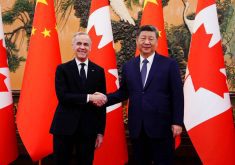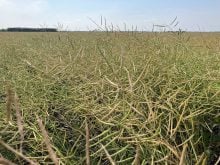[UPDATED]—No immediately-imposed tariffs means more time to engage with American officials on the importance of free trade and to prepare for future negotiations say agriculture industry groups say.
“This measured decision provides a valuable opportunity for the Government of Canada and our fruit and vegetable sector to engage with stakeholders and underscore the benefits of fair and free intercontinental trade,” the Fruit and Vegetable Growers of Canada said in press release on Monday.
Citing an official in Trump’s incoming administration, Reuters reported on the morning of Jan. 20 that Trump didn’t plan to immediately impose threatened 25 per cent tariffs on imported Canadian goods. He will rather “direct agencies to investigate and remedy persistent trade deficits and address unfair trade and currency policies by other nations.”
Read Also
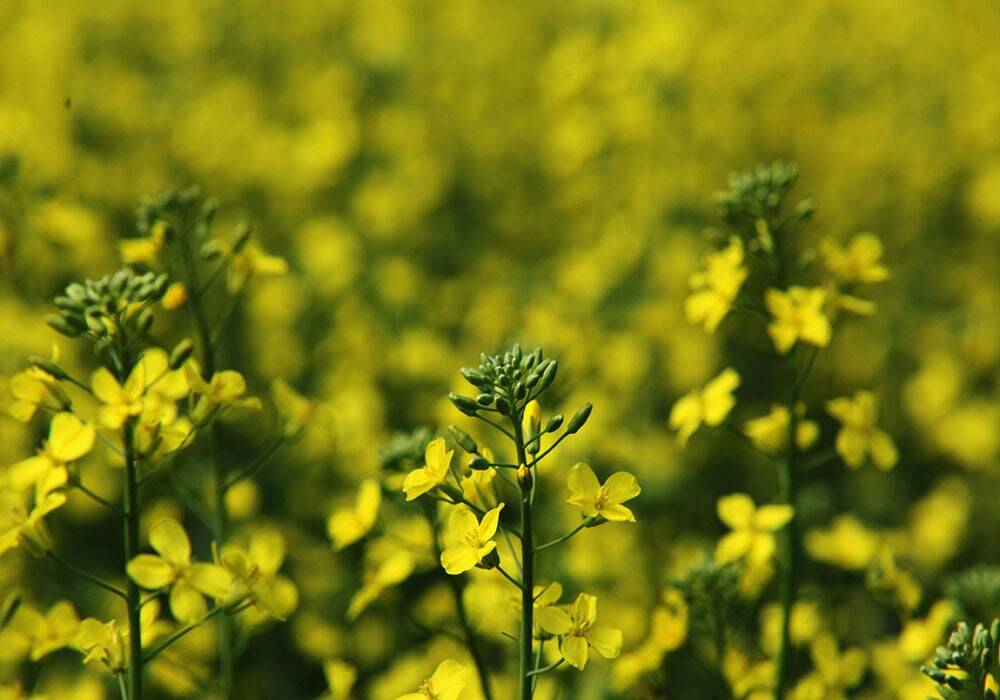
Canola industry pumped about 45Z clean fuel ruling in U.S.
Canada’s canola sector is pleased with the new 45Z guidance published by U.S. Treasury.
Later that day, Trump suggested he would impose tariffs starting February 1.
“We’re preparing, I suppose, for a marathon, not a sprint,” said Lauren Martin, senior director of public affairs at the Canadian Meat Council on Monday afternoon.
“There’s still the upcoming CUSMA review which we have in our sights,” Martin said.” We want to make sure that Canada is in the best position it can be in for those upcoming consultations.”
“Every conversation to date suggests that [Trump] is looking at trade and he is looking at tariffs as one of the ways in which to increase his revenues in the U.S., but also put American citizens in a better position,” she added.
“Whether or not tariffs (do that) though, is something that Canada, we question, but all of his actions have pointed to that being President Trump’s line of thinking.”
Internal pushback
Some of Trump’s allies may be advising him against moving forward with the tariff plan, said Keith Currie, president of the Canadian Federation of Agriculture (CFA) on Monday afternoon.
“That’s just me guessing,” Currie said, “but based on conversations we’ve had with people in the States, they were just as concerned about the tariffs and what it was going to do to the economy and their businesses as we were.”
Currie said his conversations with agriculture leaders in Iowa at the start of January led him to believe there had been resistance to Trump’s proposed tariffs.
“Talking with a number of the state senators down there, they are collectively pushing their governors to get in Trump’s ear and say, ‘don’t screw this up.’”
William Reinsch, a trade expert at the Center for Strategic and International Studies shared a similar sentiment.
“It sounds like maybe he’s been listening to the people telling him that immediate tariffs would really hurt the financial markets,” Reinsch told Reuters.
Currie said he thinks Trump will put his efforts toward a “trade country of origin type of process.”
When it comes to “China, certainly he’s hunkering down,” Currie said, though he added Canada could be an “easy target” because of its smaller economy.
Sylvain Charlebois, Director of the Agri-Food Analytics Lab at Dalhousie University, said via a post on X (formerly Twitter) he does not expect Trump to follow through on his threats.”
“Almost two months ago, (I) stated President Trump would never issue tariffs on agricultural commodities and agri-food products destined for the U.S.,” Charlebois wrote. “Still believe this to be the case.”
—Updated Jan. 21 to add later comments by President Trump




